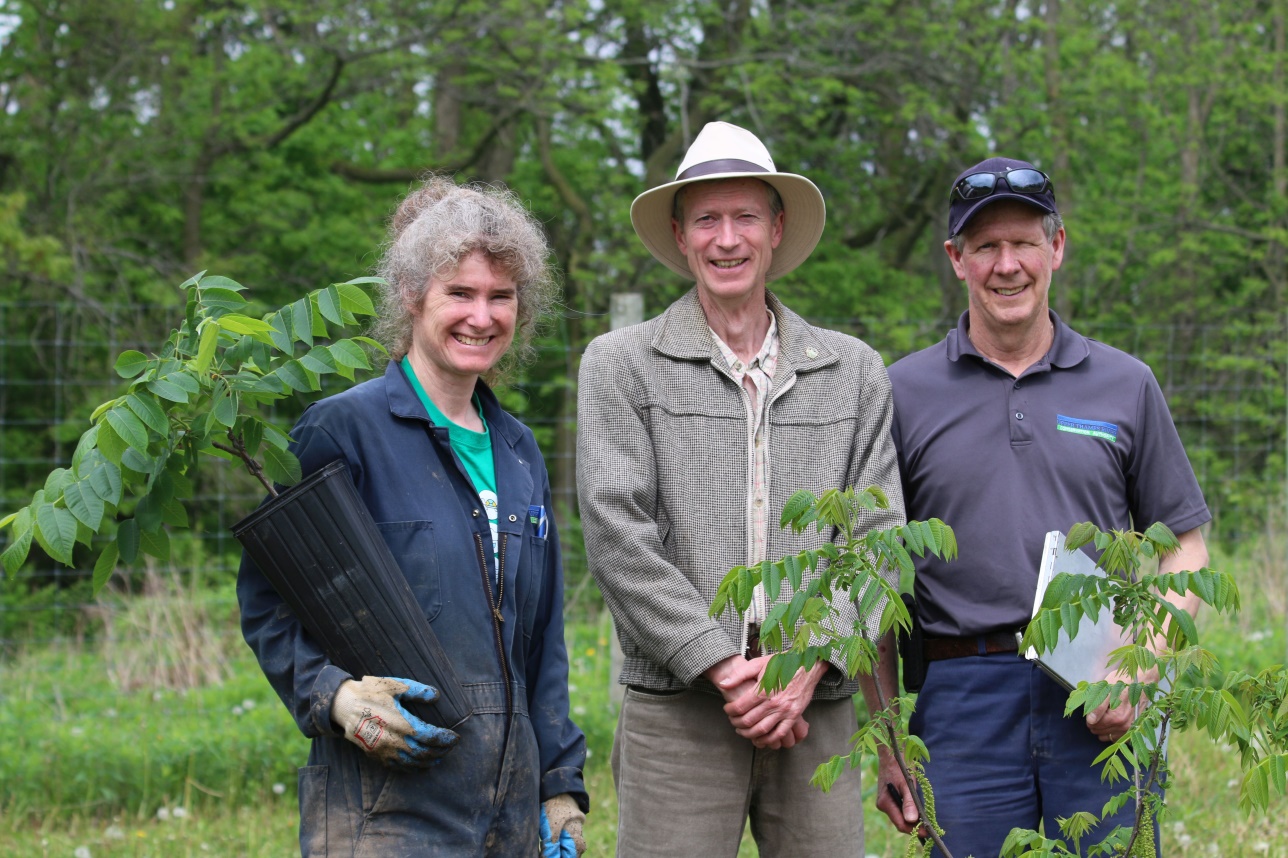Meet the new UTRCA Chair (UTRCA Weekly, February 11, 2021)
Feb 11, 2021 – The UTRCA Board of Directors annual elections were held at the January 26th meeting. Our new Chair is Councillor Alan Dale, who represents the Townships of Norwich and South-West Oxford. We asked Alan a few questions about his new role.
Why did you join the UTRCA Board of Directors?
I was on municipal council from 1994 to 2006 and the best part of it was being on the Board of the Grand River Conservation Authority from 2000 to 2010. I lost the municipal election in 2006 but Oxford County Council went against their standard practice of only appointing politicians and they re-appointed me to the GRCA board. After this, I was not expecting to serve on council again. However the opportunity arose in 2018 and I stood for office again. Once I was back on the Council for the Township of Norwich, I told the mayor that my one wish was to be back on a CA board. My ward is split between the Grand and the UTRCA but I live in the UTRCA part. I have planted trees on my farm over the years, thanks to the UTRCA, and knew a few of the staff. It seemed like a natural fit and a new challenge for me to serve on the UTRCA Board and fortunately I was appointed by County Council.

What do you see as the role of a Board member?
Board members need to represent their respective municipalities but I truly believe that they need to look at the bigger picture. The whole idea of a watershed approach is to look beyond artificial lines on the map and focus on the natural topography and the entire watershed. We need to listen to our municipalities and their concerns, especially around priorities and budget. However, communication is a two way street. Board members need to convey the issues and concerns of the watershed and carry that message back to our respective councils and residents. The CA’s priorities may not seem important to some people and municipalities, but I believe they are and this is something board members need to educate people about. Protecting people and property from flooding, protecting and improving water quality, forest cover, and natural areas, combating soil erosion, and providing outdoor education and recreation opportunities — these are all very important and all too often they are taken for granted.
Why are Conservation Authorities important?
Conservation authorities are important because they are local and accountable. They are linked to municipal government and they have regulatory powers. This is a large part of why people have an issue with a CA but it is an important role. We are not an NGO or lobby group and we do not focus on a single issue. We collaborate with NGOs and community partners, all three levels of government, the agriculture sector, etc., and we have expertise and a track record of having boots on the ground and getting projects accomplished.
• Find out more about the UTRCA Board of Directors
• Hear Alan’s comments to the Board as the newly elected chair
What do you hope to achieve during your tenure?
Two years ago I first arrived at the UTRCA and I was really excited about the Environmental Targets. It was a four year plan with clear goals and measurable targets. It was about reversing the tide and not just fighting a losing battle to try and maintain the status quo. Unfortunately, we have not quite gotten there and now we have had some big hurdles placed in front of us [with changes to the Conservation Authorities Act and the pandemic]. I am hoping that the board can work together and focus on protecting our natural environment throughout the watershed. I am hopeful that we will have some consistency across the watershed instead of a patchwork of programs since a chain is only as strong as its weakest link. I am expecting that we can set the bar high and continue on with most of what we are doing now. It will take a few years to put these municipal service levels and agreements in place but I am hopeful that together we can persuade people of the value of the programs and services we provide. Then we can set the stage to someday finish implementing our environmental targets and, ultimately, setting the next round of new ones. (In the business world they call it continuous improvement, so why can’t we?)
What do you think is the biggest challenge and opportunity facing the UTRCA?
Securing the service contracts with our member municipalities will take a lot of time and energy. However, I am treating it as an opportunity to educate our member municipalities on the value of what we do and what we can do. The opportunity is to be innovative and offer to do even more; the uptake may surprise us.
Covid-19 has been an enormous challenge for us and will continue to be. However, people have stayed close to home and discovered, or re-discovered, local parks and trails. The pandemic has brought home to people how important the natural environment is for physical and mental health. (What ever happened to the provincial Ministry of Health Promotion?) The challenge will be in securing the revenue since many activities are free or low cost. People will pay hundreds of dollars to watch the Maple Leafs lose but expect a walk in the woods to be free.
I may sound naïve or overly optimistic but I believe that, without optimism and hope, you are handicapping yourself when you need to be giving it your all.

